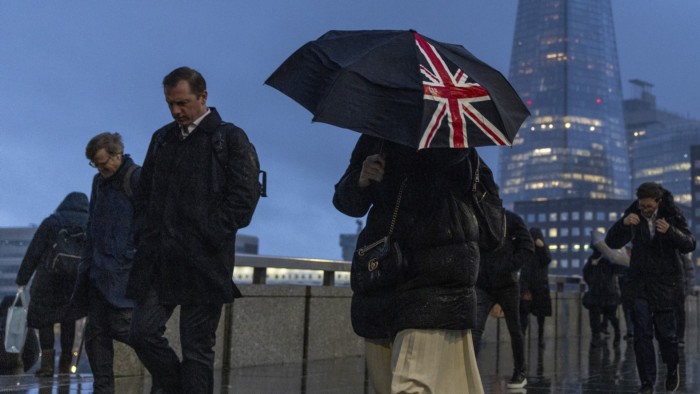Unlock the Editor’s Digest for free
Roula Khalaf, Editor of the FT, selects her favourite stories in this weekly newsletter.
The UK’s official statistics are doubly disconcerting. They currently convey a subdued economy, and may also be unreliable. Britain’s policymakers have had to make do with provisional jobs data for over 18 months while the Office for National Statistics has made slow progress to boost response rates to its Labour Force Survey. A fix may not come now until 2027. Flawed employment numbers might be forgivable on their own, but a recent series of disclosures and complaints have laid bare just how far the ONS’s data quality has sunk.
March was a particularly humbling month for the institution. It postponed key trade data and suspended the publication of two price indices that help calculate GDP. The Institute for Fiscal Studies, a think-tank, raised questions over how it revalued pension wealth. The Bank of England’s Monetary Policy Committee continued to flag concerns over data reliability at its meeting. Then, this week, ministers launched an independent investigation into the organisation’s latest failings, which build on long-standing issues with population estimates and monthly trade data.
The ONS must quickly get a grip. Its should continue to be honest about its data flaws. But as the negative announcements pile up, faith in the institution is fading. Economists and traders are starting to put greater weight on real-time data from private providers, as the ONS numbers become more prone to revision. The longer the problems persist, the more it risks compounding decisions by the BoE and government made on bad data. For instance, last week chancellor Rachel Reeves rebuilt slim headroom against her fiscal rules based on forecasts produced by the fiscal watchdog, which depend on ONS inputs.
The institution’s problems are wide-ranging. Other countries suffered drops in survey response rates following the pandemic, but not as widely and precipitously as in Britain. This partly comes down to management decisions. Greater emphasis has been put on broader data initiatives, including important but slow-moving modernisation efforts to collate administrative data sources. This has shifted limited ONS resources from less sexy but critical existing surveys. Fewer than one in five of its staffers reckon the organisation manages change programmes well. That’s far below the median across the civil service.
Staffing is another challenge. National statistician Sir Ian Diamond says the ONS needs 1,500 interviewers to get “great statistics” across its surveys, but did not have enough funding to reach that target. The organisation cannot compete for data analysts with other parts of the civil services, let alone the private sector, where demand for statistical skills is high. Its recent, public failings have hit workers’ morale too, though the institution was lauded for its rapid and detailed surveys during the pandemic.
The public body must adapt to rebuild its reputation. Public services are stretched. Waiting for more funding is not a strategy. This means it will need to prioritise the data series and modernisation initiatives of most importance to the public. For now, this may require some surveys and projects to be mothballed. The government has a role too in pushing departments to share data with the ONS.
The impending investigation is also an opportunity to take a fresh look at how the organisation is governed, funded and held accountable. Splitting the wide-ranging role of the national statistician between two individuals, one covering statistics and one having operational responsibility could, for example, help balance the need for modernisation with maintaining existing outputs better. But right now the ONS must focus on getting the basics right again. Trustworthy national jobs and GDP numbers are the bare minimum.




